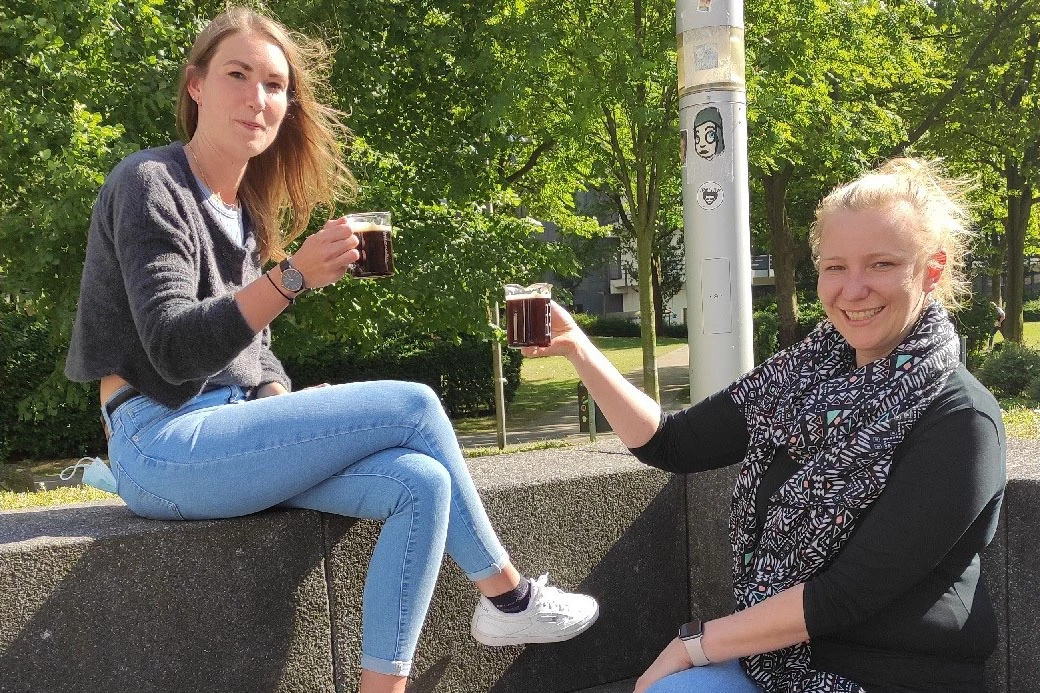Researchers in Germany have created a laser-powered extraction system that pumps out cold-brew about 300 times faster than traditional methods. Arguably superior in flavor, aroma and caffeination, cold-brew coffee may soon be convenient too.
It's a broad church, coffee, and one that welcomes all comers. From the building site break-room's styrofoam cup of instant, softened off with milk and sugar, to the treacle-thick, spoon-levitating Turkish dessert, to the unbearably hipster deconstructed latte, it's an energizing pick-me-up that can be as sacred or profane as you feel on a given day.
Cold-brew coffee sits very much at the more sacred end of the scale, because it takes so damn long to make. Steeping coffee beans in cold water extracts up to three times more caffeine than drip-filtering with hot water. It's less bitter and acidic, making for a more approachable drink from a wider range of beans, and proponents claim it's more aromatic as well.
The Japanese have been cold-brewing coffee for centuries – but then, perhaps they were a bit more patient than the rest of us. A cold-brew takes up to around 24 hours to steep, which is fine if you're organized enough to put a big jar in the fridge on Saturday, but it's no consolation to a bleary-eyed soul groping around the kitchen completely unprepared on a Monday morning. State-of-the-art equipment can reduce that to around 12 hours, but still, planning remains a key ingredient.

Enter a chemistry research team from Germany's Universitat Duisberg Essen (UDE), which has developed and demonstrated an ultra-fast, laser-charged cold-brew process that takes just a few minutes, delivering the flavor and much of the chemistry of a cold-brew in record time.
The technique is derived from the laser synthesis and processing of colloids (LSPC) field, a method typically used to blast apart metal solids in solvent solutions and create solutions of suspended nanoparticles. The researchers took a neodymium-doped yttrium aluminum garnet (Nd:YAG) laser, tuned to 532 nanometers, and created 125-picojoule pulses lasting just 10 picoseconds. They pulsed it through a solution of ground coffee mixed in with water, some 80,000 times per second, for three minutes, never raising the temperature by more than a few degrees.
You can see the process in the very short, time-lapsed and low-res video below, taken from the University's Instagram story.
The resulting solution was filtered and compared against a 24-hour cold brew and a cup of hot drip-filter coffee. Acidity in the laser-coffee was almost identical with the 24-hour cold brew, and significantly less than the hot coffee. The important aromatic trigonelline was highest in the cold-brew, lowest in the hot-brew, and somewhere in between in the laser coffee. No substances were found in the laser coffee that weren't already in the hot or cold brews.
Caffeine levels were closer to hot coffee in these experiments, but the researchers note that the laser technique extracts caffeine extremely quickly, and both caffeine and trigonneline levels could likely be brought up to cold-brew equivalence with a couple of extra minutes under the laser. Other volatile aromatic compounds like pyridine and diphenolwere were present only in the cold-brew and laser-brew – they evaporate off when you make a hot coffee, contributing to that gorgeous hot-brew smell but disappearing from the flavor profile.
"In summary," reads a study published in the journal Nature, "we recorded a similar [chemical] profile for all coffee variants. The cold brew and the ps-laser-brew show the highest alkaloids' concentration, while their amount in the hot variants is decreased ... The chemical composition of ps-laser-extracted coffee is very similar to conventional cold-brew coffee."

No subjective taste or olfactory testing was done at this stage, and the researchers note that more in-depth chemical analysis will be needed to meet food safety regulations. They also note that there's some fiddling to be done with the laser's parameters, and other refinements to the process they'd like to try.
But the team has its sights firmly set on commercialization, hoping to develop laser-extracted coffee systems for cafes, and event and reception centers. The technique could also have interesting effects on tea and matcha, and the researchers don't plan to stop there. "Cold-brew coffee is just the beginning, said Dr. Anna Rosa Ziefuss, lead author on the study, in a press release. "We are currently working on the development of other recipes for cold soft drinks."
Given how quickly the latest trends in coffee-making can sweep across the more man-bunned and moustachioed suburbs, we can see laser-coffee getting a solid run if Ziefuss and her team can get an effective system into production at a reasonable price.
The research paper is open access in the journal Nature.
Source: Universitat Duisburg Essen






